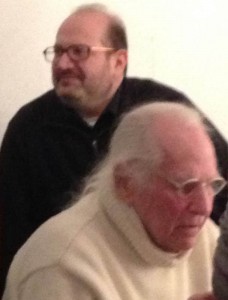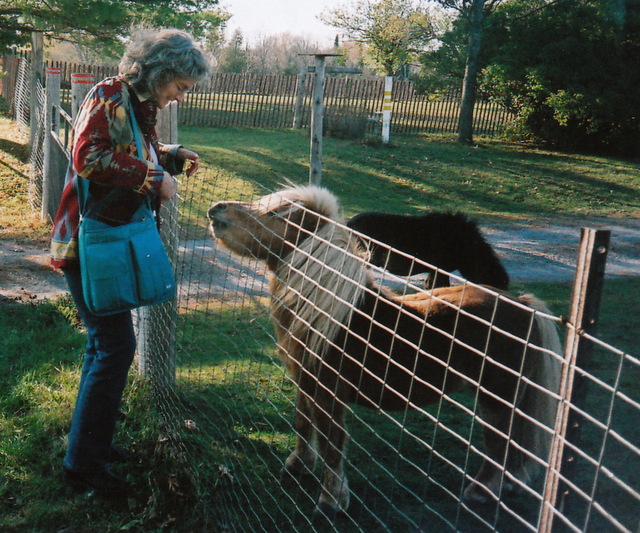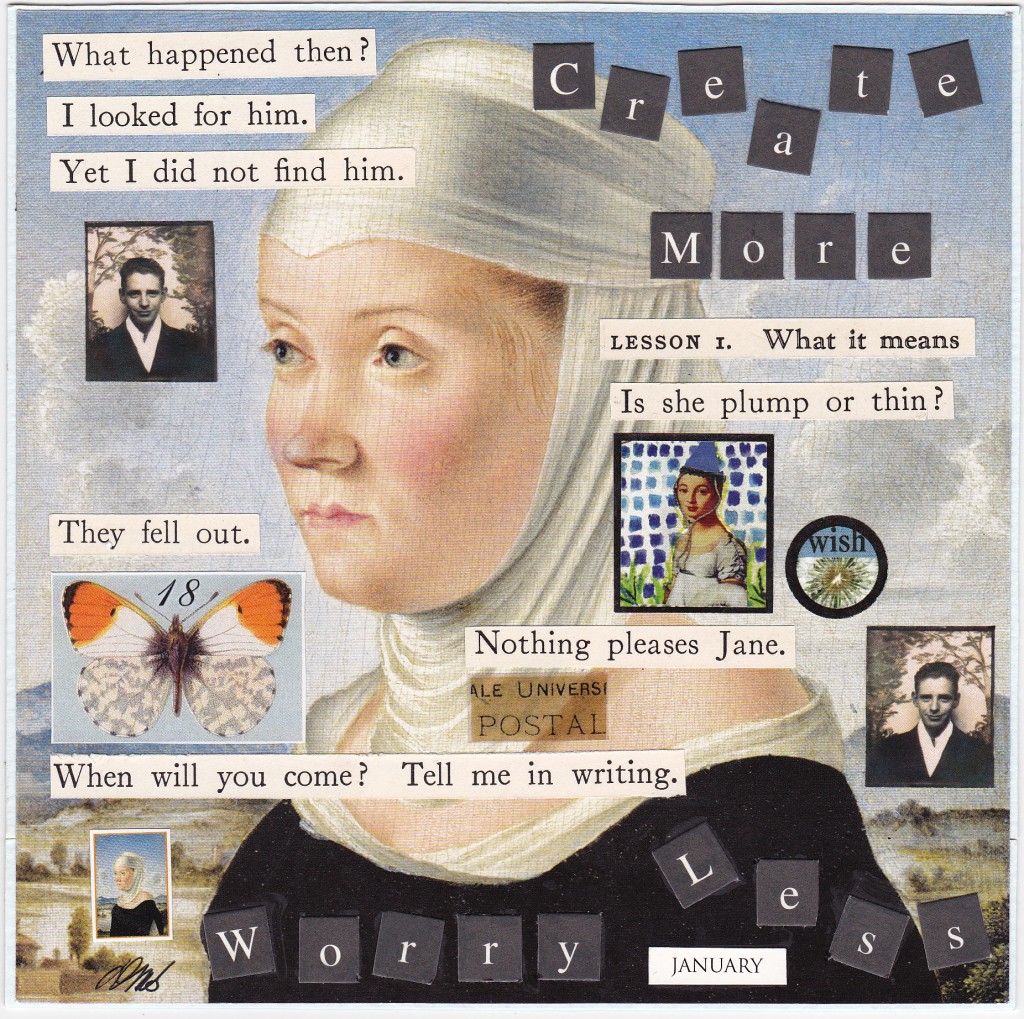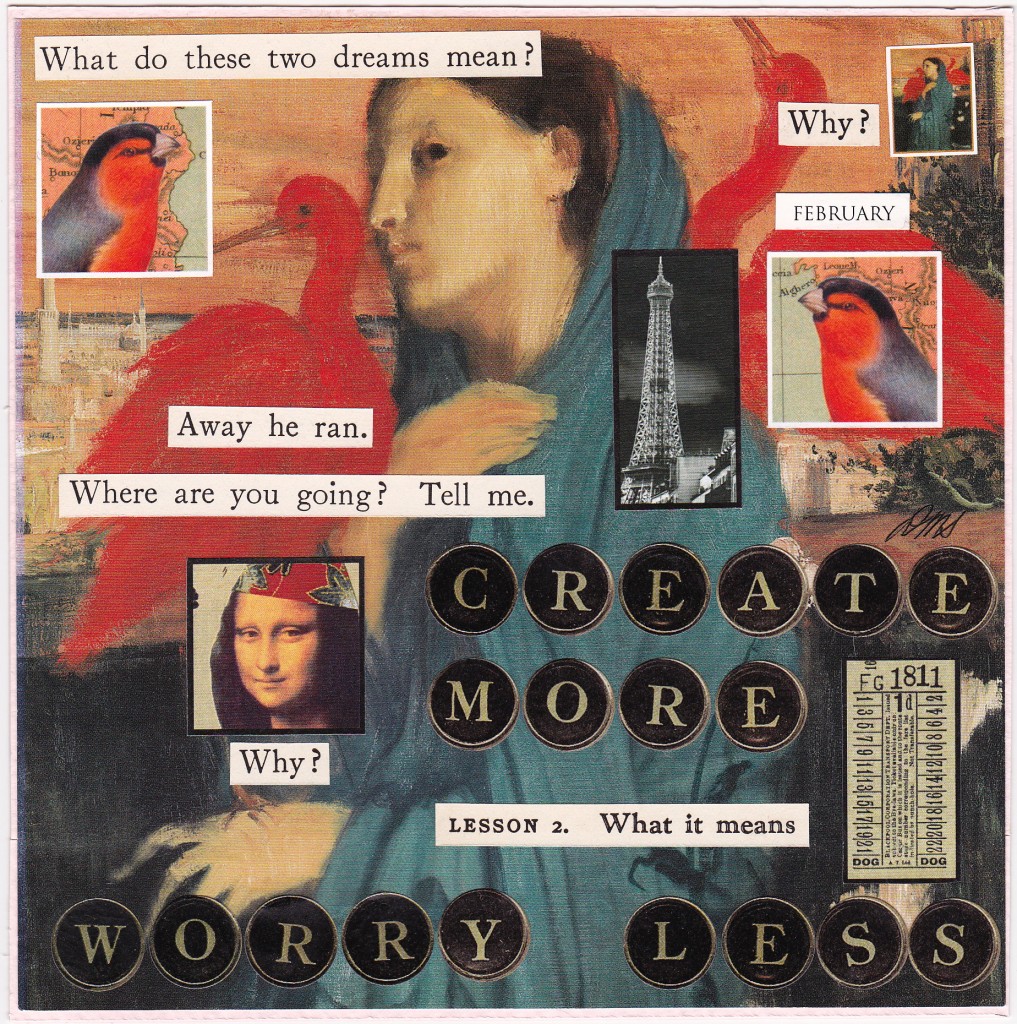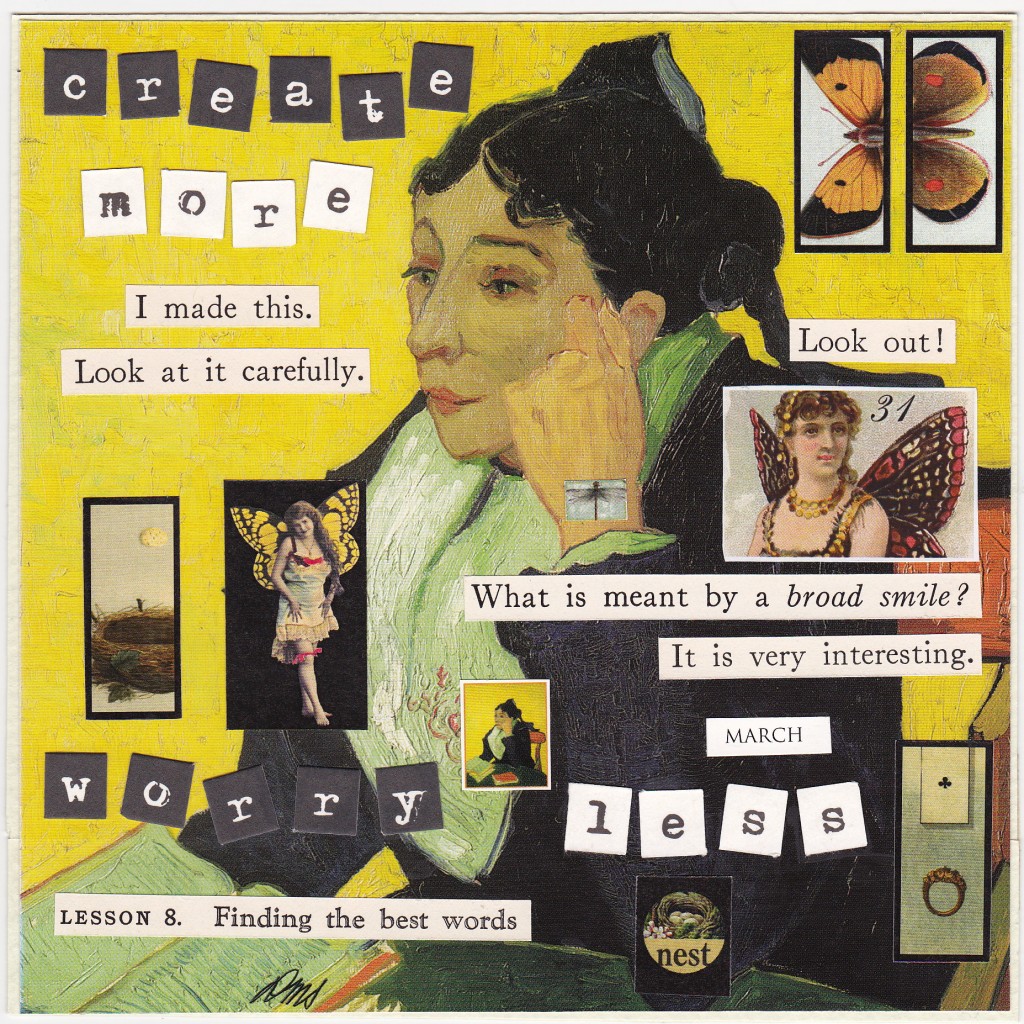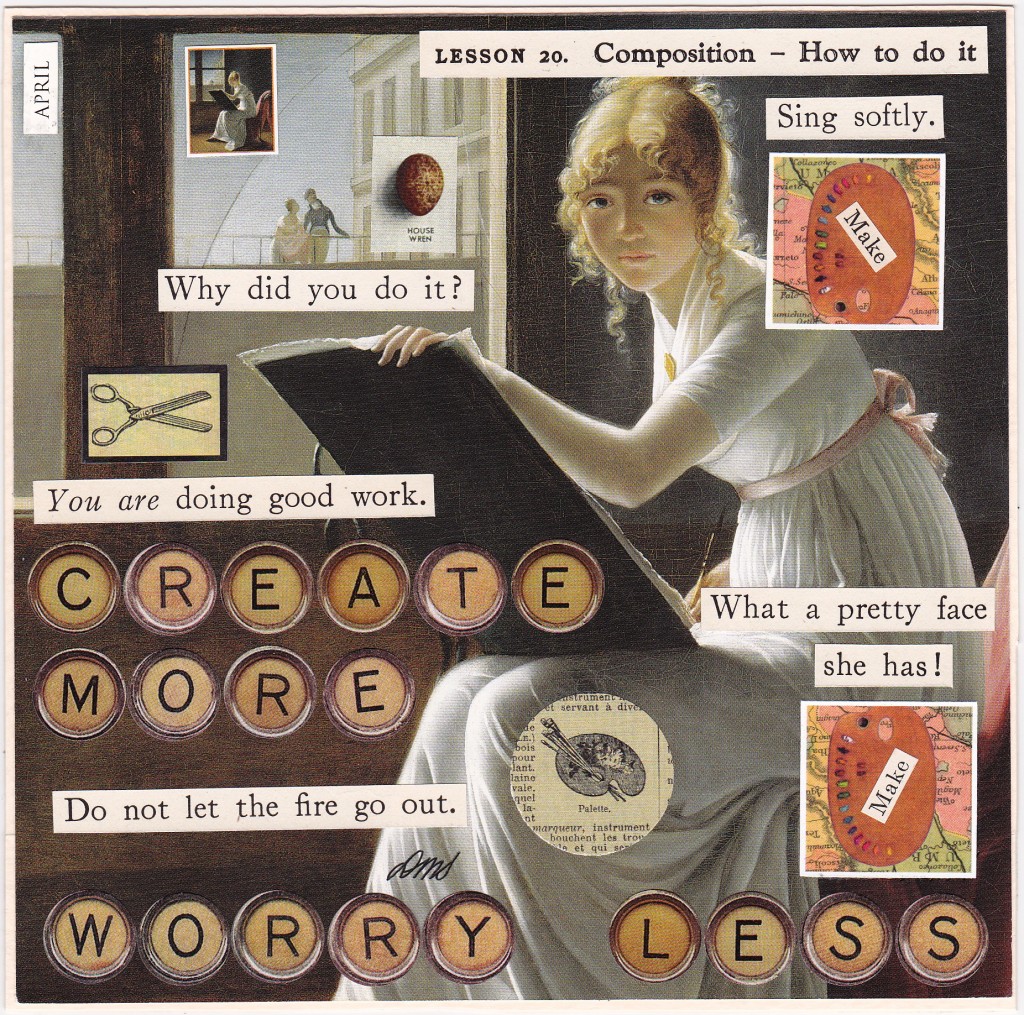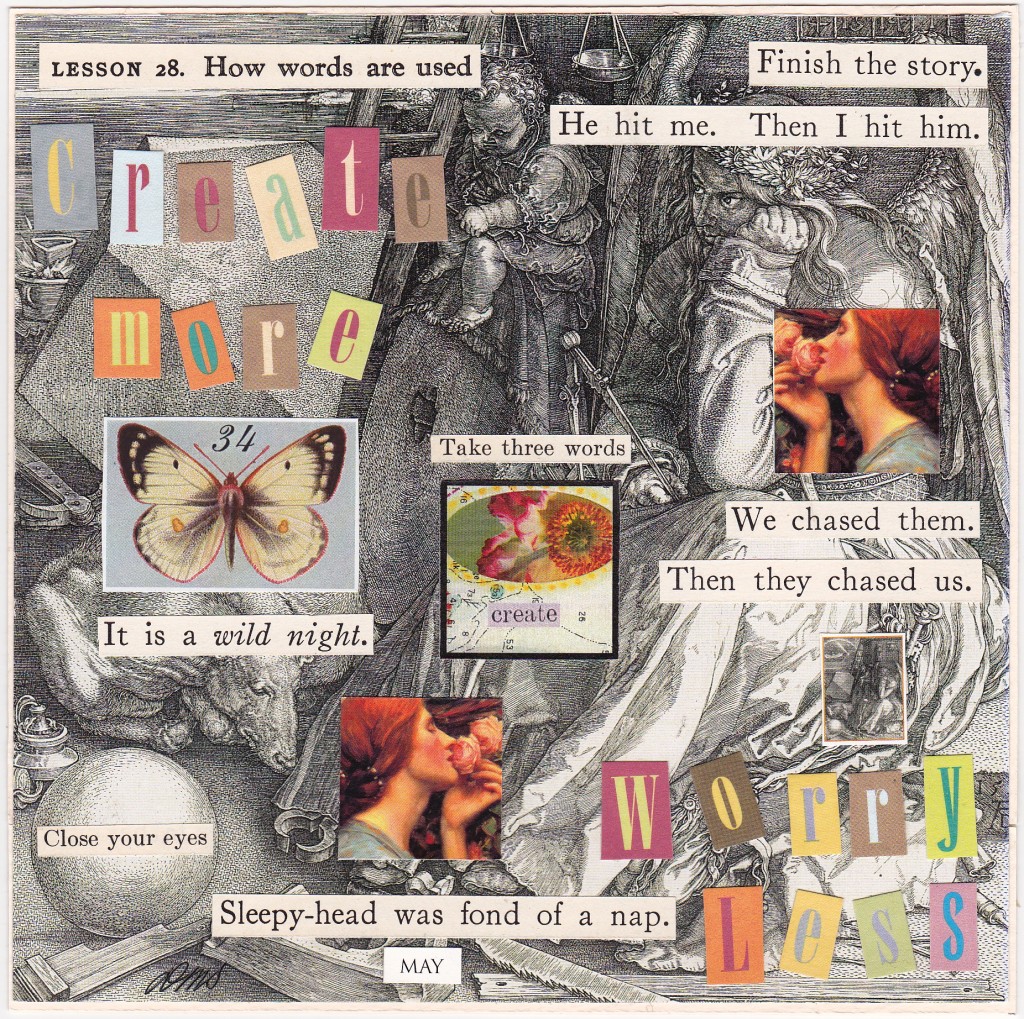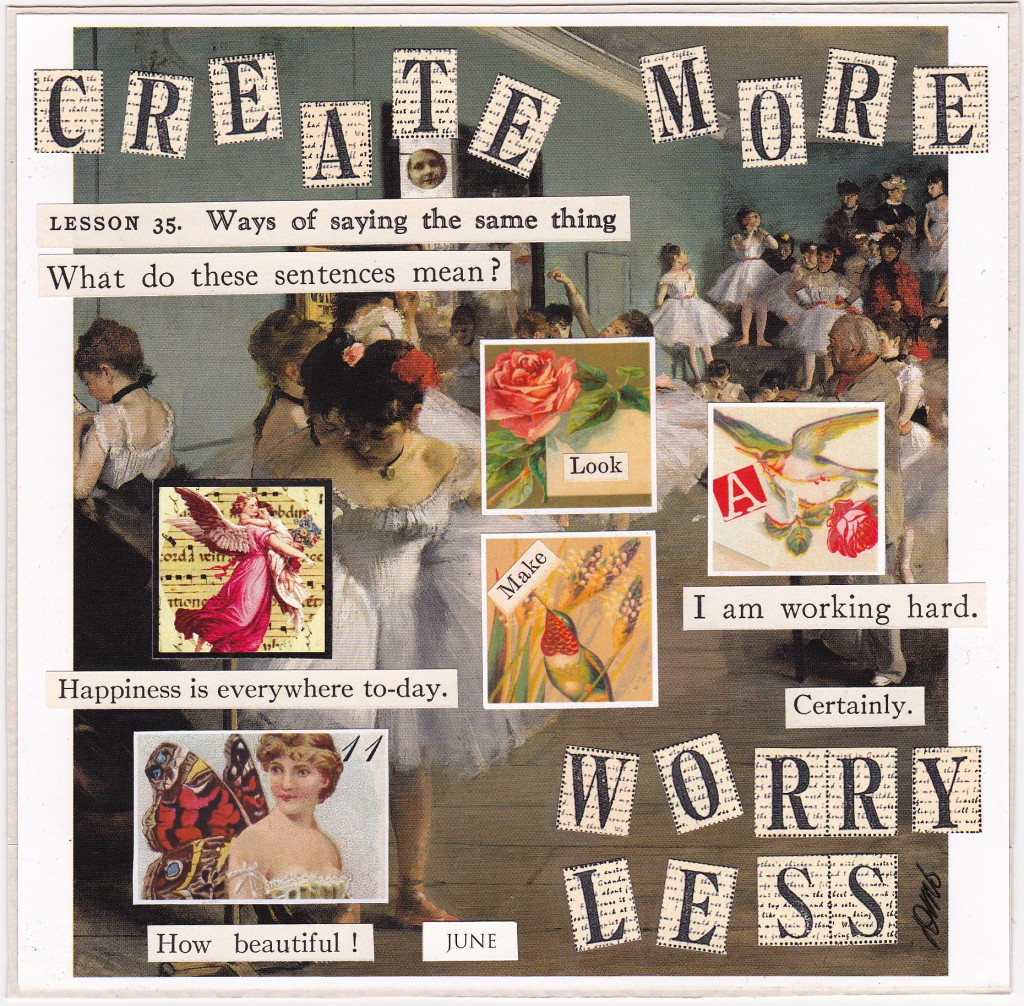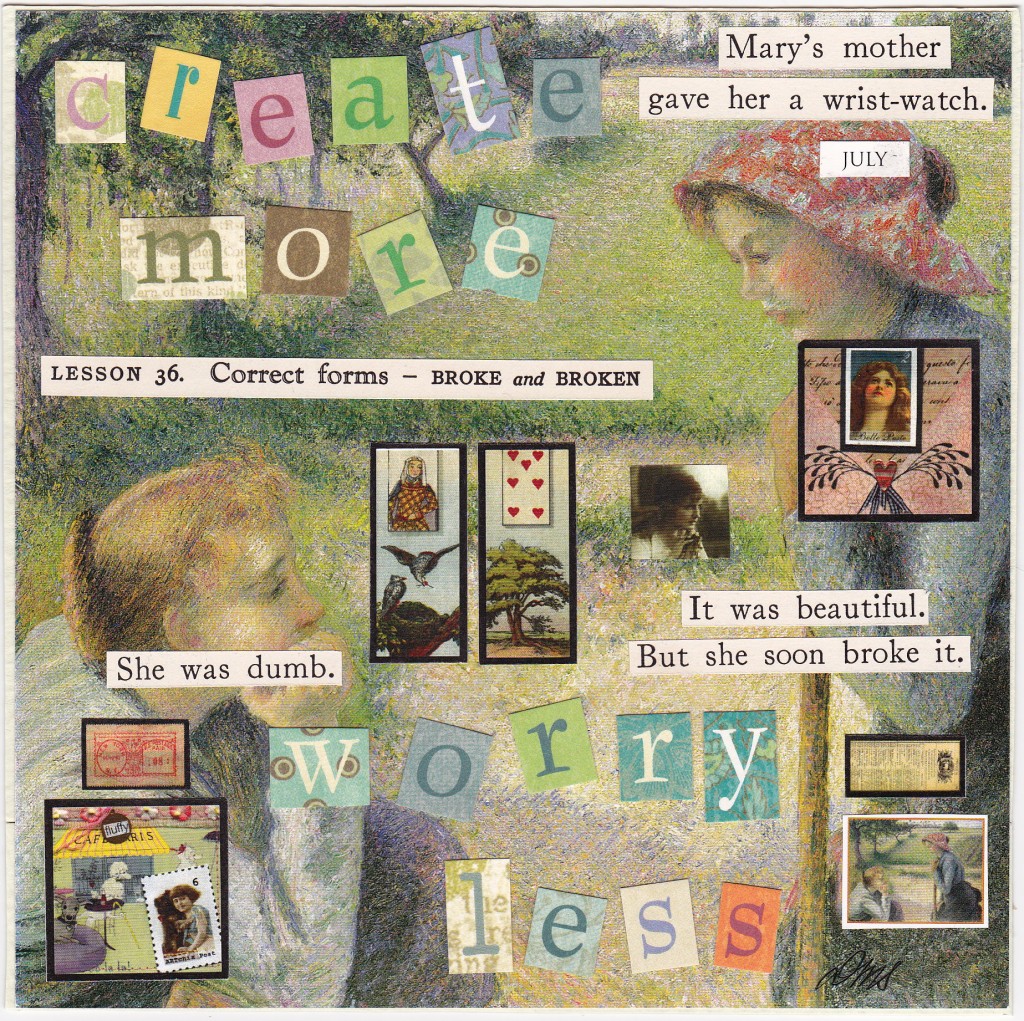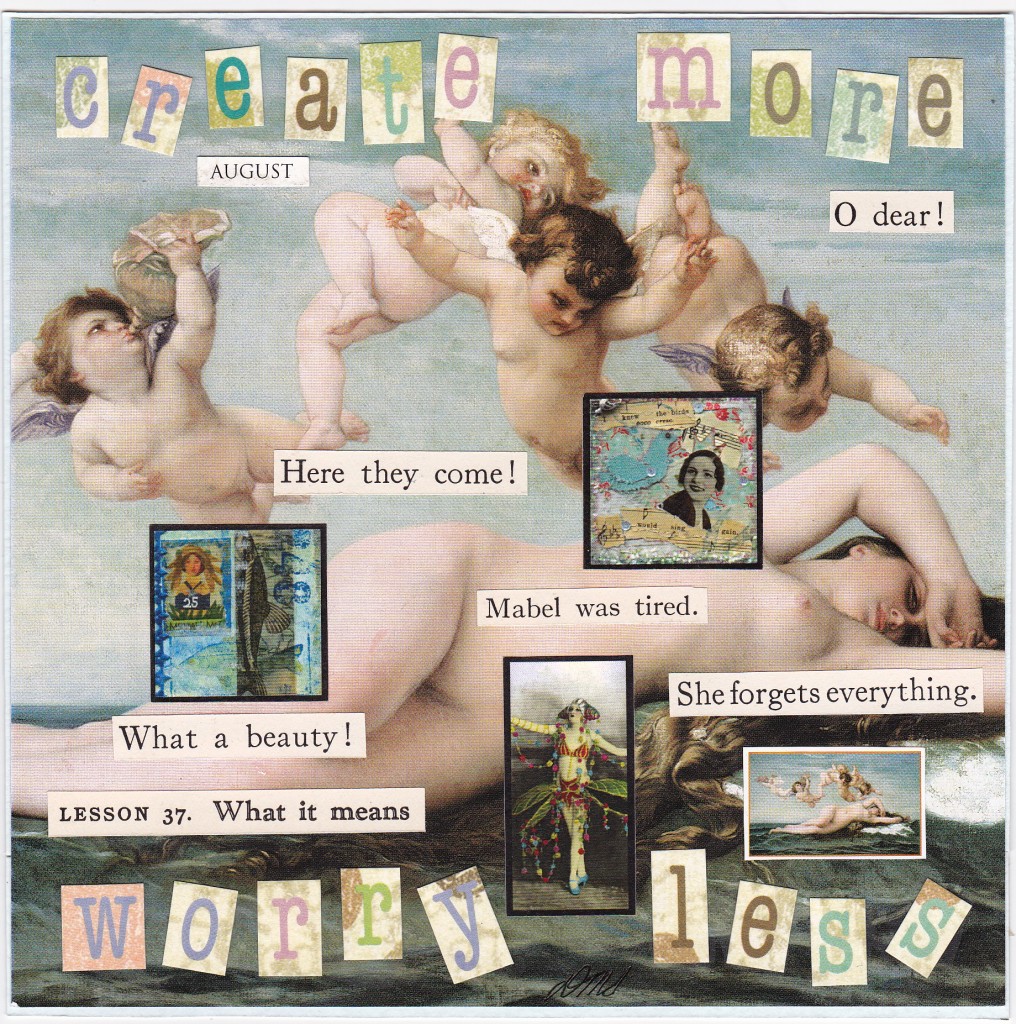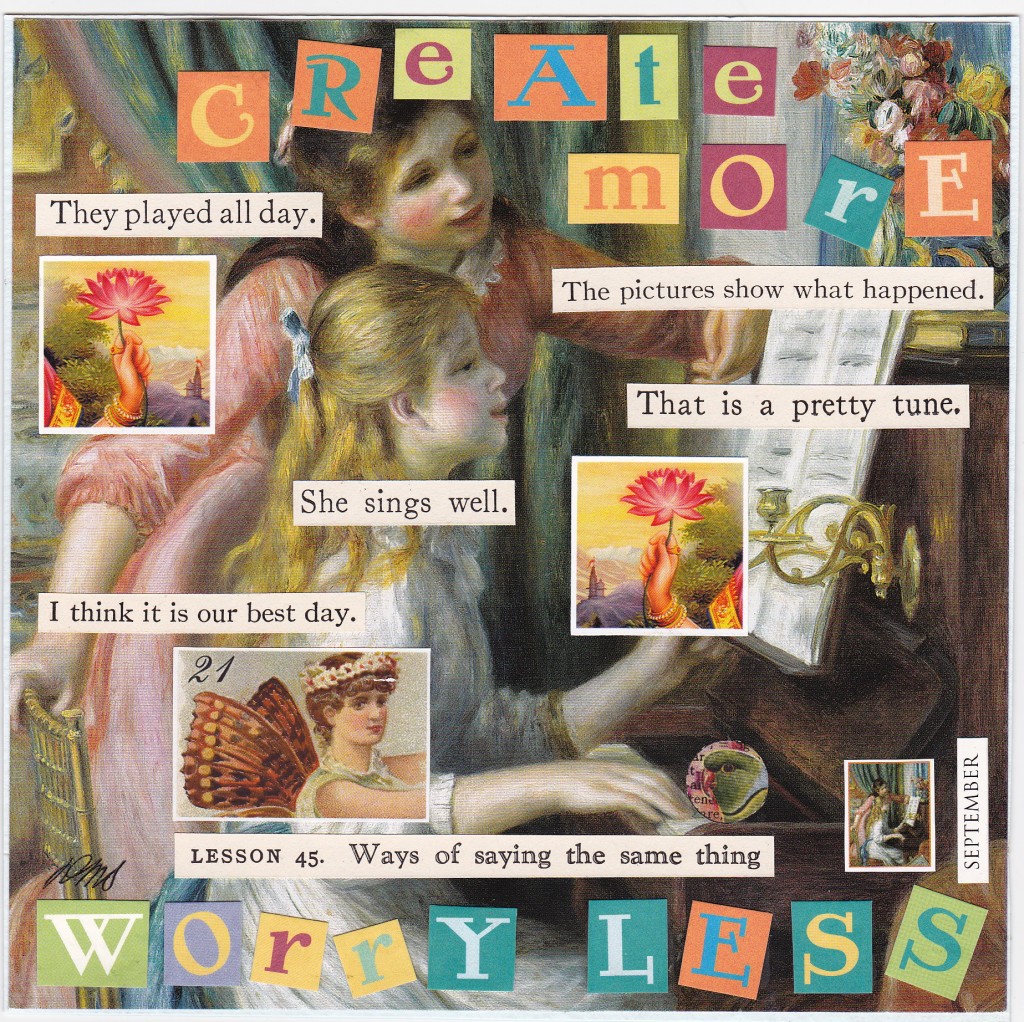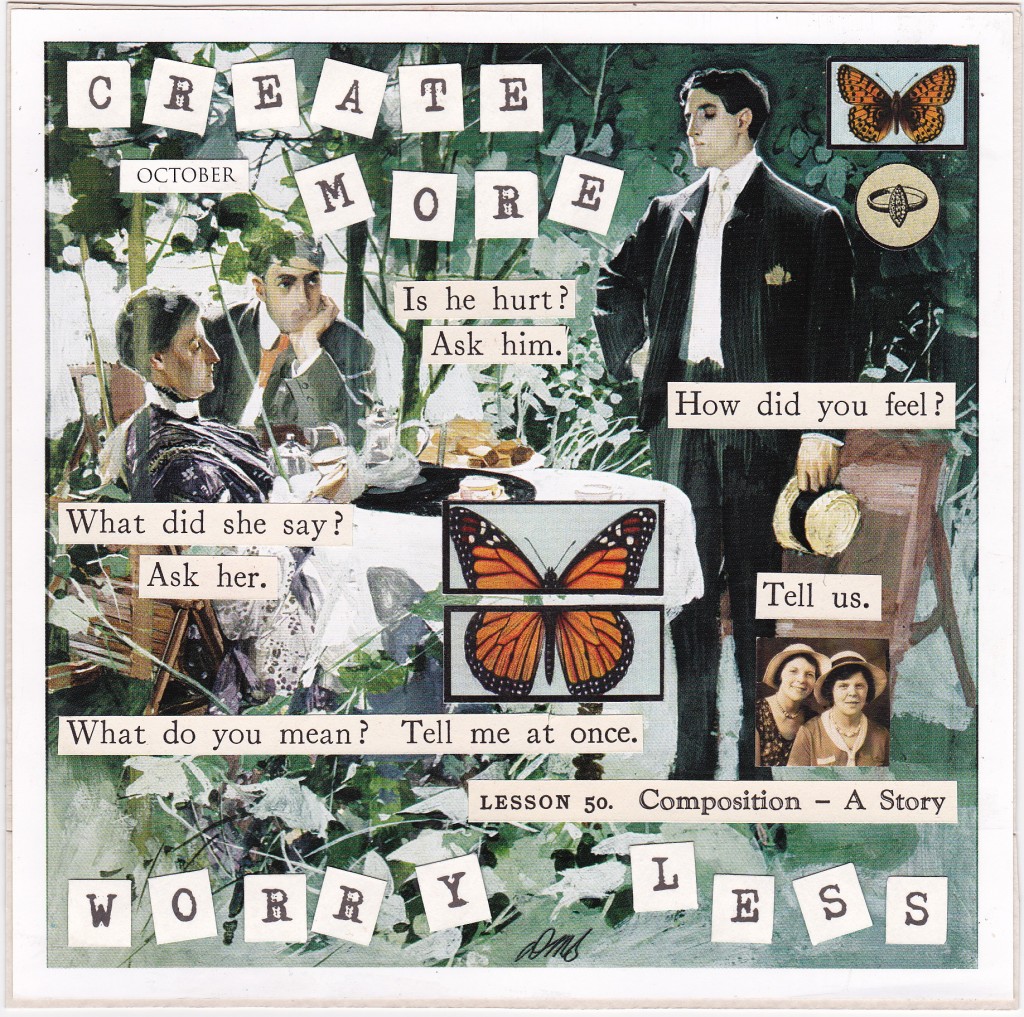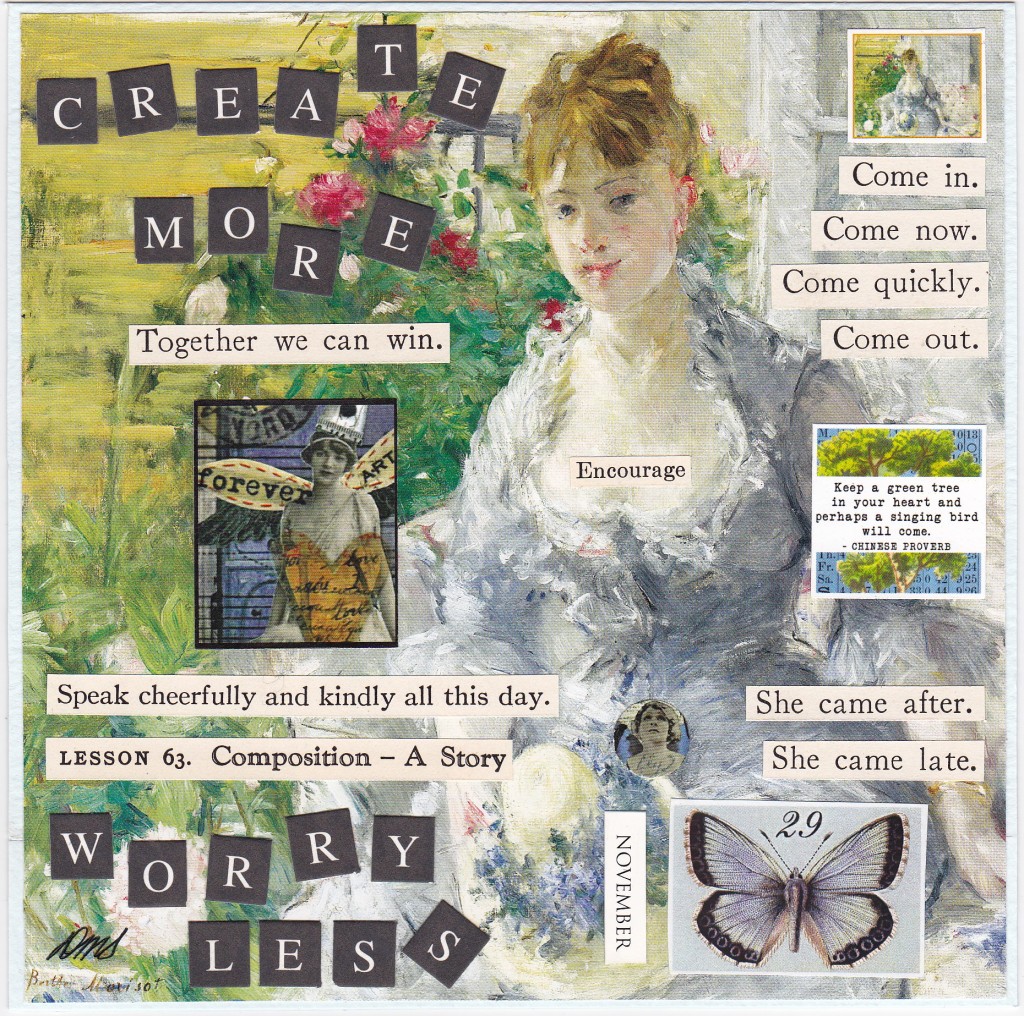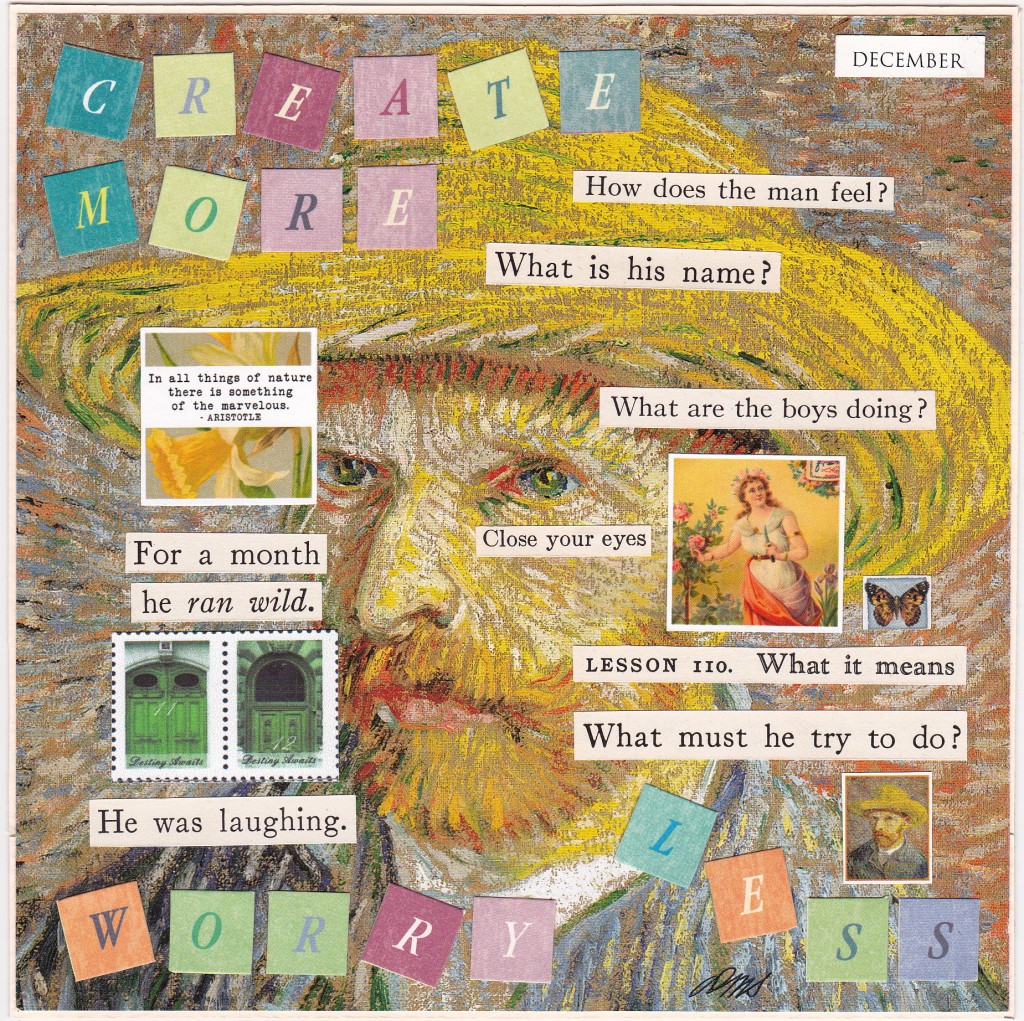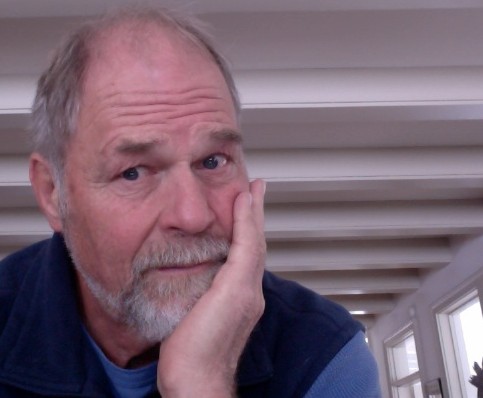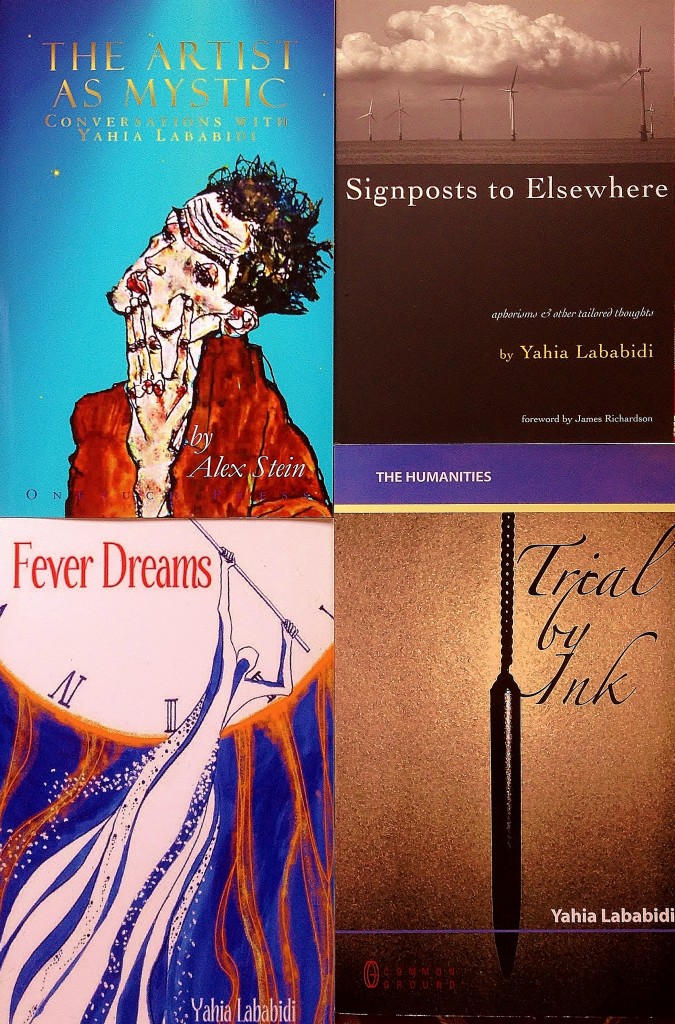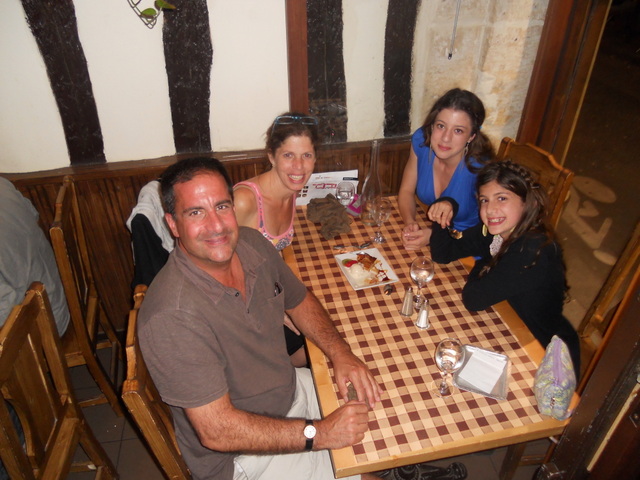 The author and his wife Michele and daughters Sophia and Isabella in a cafe just off rue de Seine in Paris
The author and his wife Michele and daughters Sophia and Isabella in a cafe just off rue de Seine in Paris
Edward Maitino is one of those unsung, mostly unpublished, really interesting writers who should be known more than he is. He was a student in a graduate writing class I led at the University at Albany-SUNY, either in 1999 or 2000, I can’t remember, earnest, dressed for the office, slightly out of place, but also the best pure writer in the class, with a Raymond Carver-ish instinct for capturing the epic solitude of alcoholism. Whenever I get a chance, I publish him. He was in an issue of Hunger Mountain (Fall, 2003, the print edition, not online) for which I co-edited the fiction with Mary Grimm. And now, once again, I have tracked him down and winkled a story out of him. Read it. You’ll see. He has a unique style, deceptively laconic and stoic. But the story has shape and mystery. It starts, jumps forward, then loops back before the beginning and tells you the story of the story. And the two stories, the two armatures, are psychological and structural parallels, the whole thing as intricate as clockwork.
dg
—
Part One
I met Marty Sutherland in a hospital emergency room on the night my father died. He was brought in on a stretcher under a pile of blankets. It was Christmastime and the place was mobbed. The ambulance driver left him in a hallway across from where I was sitting with my sister.
Marty wasn’t moving. His arms were at his side under the blankets and his eyes were closed. But I could hear him moaning. Someone had taken off his boots and placed them at the foot of the stretcher. Nurses kept bringing over warm blankets to cover him. He must of had ten blankets covering his body.
It was almost like he knew I was staring at him because he opened his eyes and looked right at me. He whispered that he was thirsty and asked for water. I jumped up out of my chair. I was only eleven-years old. I ran down the hallway to get the nurse.
Marty had this crushed look on his face and his eyes were sunken deep in his sockets. I had never seen a man so close to death until a few minutes later when I saw my father. The whole mood that night was grim. The doctors and nurses were trading anxious looks or avoiding looking at anyone at all. At the time I couldn’t understand why. It just made my stomach sick.
Marty was rushed through these huge metal doors. The doors swung open and closed automatically, which made it seem—to an eleven-year old boy—like Marty got swallowed up. Later the same set of doors ate my father.
I saw Marty again about ten years later during another low point in my life. It was my last semester of college and a few weeks after my girlfriend threw me out of the apartment we shared.
I was living in this dreary basement apartment that I was lucky and unlucky enough to find. There was a reason it was available half way through the semester. I was eating a lot of junk food, cutting classes, and watching TV in the dark. I guess the apartment suited my mood.
It was late in the day and I was sitting alone in a diner near my mom’s house when Marty walked in on crutches. He sat in a booth by the window and when his pants hiked up I noticed two prosthetic legs above his socks.
After I finished eating I walked up to Marty’s booth. I’m not sure what I was hoping to accomplish.
I said, “Do you remember me?”
He looked up and shook his head.
“I met you at the hospital the night you were brought into the emergency room.”
“I don’t know anything about that,” he said.
Marty went back to his plate, cutting a piece of grey meat, mixing instant mashed potatoes with canned peas, slurping a cup of coffee.
“I was a kid then, so you’d have to picture me a lot younger. I was sitting across from you in the hallway. You asked me for a glass of water.”
Then I said, “It was December 17th, 1982. I remember the date because it was the night my father died.”
Marty pushed his plate away. He lit a cigarette. I took out a pack of cigarettes from my shirt pocket. Marty handed me matches. He moved the ashtray to the middle of the table. I sat down across from him.
I found out Marty had lived on Florida’s gulf coast for several years before moving back to Schenectady after his mother died. He survived on a monthly disability check and small inheritance. Besides his prosthetic legs, he had a heart murmur and the onset of diabetes.
He didn’t say much about the night we met other than he’d lost his legs from frostbite after leaving a Christmas party drunk and passing out in his car in the bitter cold. He sued the owners of the house who hosted the party and the city where he parked his car, but his lawyer filed the papers too late and the case got dismissed.
“That’s too bad,” I said.
He shrugged his shoulders. “The system’s stacked against a guy like me.”
We paid for our meals separately and walked outside. He showed me how his car was rigged for him to drive using his hands. It had the throttle and the brakes on the steering wheel.
He pulled two cans of beer out of a cooler in the back seat. We drank the beer and smoked cigarettes under the streetlight. It was one of those warm spring nights that you appreciate after a long winter.
Marty said the next time he saw me at the diner he was going to buy me dinner.
“You don’t have to do that,” I said.
“I want to,” he said. “You got me water, right?”
“Well, I told the nurse.”
“It’s the same thing.”
I watched Marty drive his car out of the parking lot, working the controls from the steering wheel. He had this wild-eyed look on his face, as if he was half-expecting the car to lift off the ground and disappear into the night sky.
I went home that night and sat in a chair in front of the TV with the volume turned down. The apartment had this horrible odor I was trying to ignore. I think it was in the carpeting. I was thinking about my father and how much I missed him. I wished he could have seen me grow up and graduate college. I was about to be the first person in my family to get a college degree. I think that would have made him proud.
I remembered how my mother would take us to visit my father’s grave on every holiday, his birthday, and the anniversary of his death. Those first few years were tough for everyone. Then my sister stopped going to the cemetery with us around the time she turned sixteen. On the next occasion—I think it was Memorial Day—my mom and I skipped visiting the grave. We never went together after that or seldom talked about my father. I don’t know why. I suppose grief has its own rhythm.
My mother started dating a salesman she met through her work. I was happy for her. They lived together in the house where I grew up. They were able to deny living together because he still paid rent on his apartment. But he was there almost every night. I told my mother to have her boyfriend give up his place and not worry about what other people think. But she was old-fashioned when it came to couples living together, especially a widow with children.
That summer I ran into Marty at the diner. I’d been over my mom’s dropping off laundry. I was looking for a full-time job and living in the same lousy apartment. My ex-girlfriend had moved back to Long Island and wasn’t too keen about me coming down to visit. I was putting a lot of pressure on her to get back together. I wanted to get married. I think she moved back home to get away from from me.
Then on my way to the diner I remembered Marty and wondered if I would see him. Sure enough Marty was sitting in the same booth, almost like he was waiting for me to walk in. And he bought me dinner, just like he promised. Being out of work, I was happy to oblige. But I didn’t take advantage of him. I ordered the daily special and nothing else, not even a soda.
He began talking about the experience of losing his legs. He said it had been years since he talked to anyone about it. I told him a little about my father’s accident.
Marty said it was stupid and reckless to leave the party as drunk as he was that night. But he often wondered why the owners of the house didn’t try to stop him from driving home. There were people milling around outside who had watched him stumble down the front steps and skin his knee.
Before the accident Marty figured he’d get married and have children. But after all these years he was comfortable being on his own and couldn’t imagine having a wife or the responsibility of raising a family.
“Life suits me just fine,” he said. “I realized long ago this was the way things were supposed to be.”
After we finished eating Marty asked if I wanted to go out for a few beers. I hesitated for a moment, not wanting to encourage him. He was too old a guy to be hanging out with. Then I remembered that I was the one who approached Marty in the first place. I kind of felt sorry for him.
“Okay,” I said.
I put his cooler and crutches in the back seat of my car and drove to a bar that he suggested. We sat in the back room near the pool table and took turns buying drinks.
After a while Marty asked the waitress to clear the empty beer bottles off the table. She wasn’t very friendly toward us. I watched the girl stack the bottles on the tray and put down a clean ashtray.
“No reason we have to look like drunks,” Marty said to her.
The waitress forced a smile.
While we were talking I noticed how Marty would tip his chair back on two legs and stare down at the floor as if his thoughts were somewhere else.
Marty talked about being in the hospital for several weeks, enduring multiple infections and surgeries, losing one leg the night he was brought in and the other leg the next day.
“Nowadays I bet they’d be able to save my legs,” he said.
“Today, sure,” I said.
He seemed to think about this for a moment.
“When I woke up from surgery, the first one, I told the nurse I wanted to see my leg.”
I moved around in my seat.
“I don’t know how to explain it,” he said. “But I felt like it was still mine. Attached or not, it belonged to me.”
“What’d the nurse say?”
“She called in the doctor, who said I was in shock. ‘Wait a while,’ he said, ‘and see how you feel.’ ‘I know how I feel,’ I said. ‘I want to see my leg.’”
Marty took a long drink of beer. I watched him close his eyes and tilt the bottle.
“Did you ever get to see it?” I asked.
“Never did,” he said. “The doctor told me there were health laws that had to be followed. Then the next day they took off my other leg and I thought, what the hell, who cares anymore?”
I looked at him closely. Unlike the first time I saw Marty at the diner, he was clean-shaven and his hair was washed and combed. He had a flat face, queer lips he kept wiping with his sleeve, and a wide nose like you’d see on a black man.
“I don’t think I could look at my leg cut off like that,” I said. “That’s crazy.”
“For months I kept having these awful dreams. I never spoke to anyone about them. They’re the most personal thing in my life. We all have those secrets.”
He shook his head in disbelief.
Then he said, “I was too ashamed to even look my mom in the eyes when she’d visit the hospital.”
We finished our drinks and left the bar. On the way back to the diner I stopped at a market so Marty could buy beer to put in his cooler. I felt uncomfortable—sort of exposed—under the bright lights in the market. The idea of people walking around filling shopping carts with food seemed brilliant. I was like, “Who invented this system of carts and conveyer belts?” That’s when I knew I was drunk.
I stood in the checkout line with a candy bar. Marty walked up struggling to hold onto a carton of beer and a bouquet of plastic flowers. I realized I should have offered to help him shop. He paid for a bag of ice, which we picked up on the way out. I had no idea why he wanted to buy the flowers, but it made me nervous thinking he was planning to give them to me. The woman ahead of us had coupons, which took time for the girl at the register to scan.
When we got back to my car Marty stocked the cooler. He put the beer in first and then emptied the ice on top of it. He opened a can of beer and handed it to me. The flowers were on the floor between his feet. He was looking straight ahead.
“You ever drive out to where your father had his accident?” Marty said.
“I used to go there when I first got my license. I’d drive by out of curiosity I guess. But I haven’t been there for a long time.”
“You think you could find it?”
“Yeah, I’m sure I could.”
“Let’s go put these flowers down,” he said. “I keep seeing these little shrines popping up along the road where someone’s died in an accident.”
“I’ve seen them too,” I said. “Sometimes there’ll be flowers or a wreathe. A lot of times you’ll just see a cross in the ground.”
We drove for miles on dark country roads. The sky was overcast and I couldn’t see much of anything beyond the shone of the headlights.
We began climbing up a long, slow-rising hill. On the other side of the hill the drop was much steeper. I noticed a sign near the top of the hill. There was a picture of a car dropping over a steep hill. I wondered if my father’s accident had something to do with the sign being put there.
“This is the spot,” I said. “Right here at the bottom of the hill.”
I pulled onto the shoulder of the road and cut the engine. We got out of the car. The road was built up several feet above the fields. There was a wire fence with wood posts at the bottom of the embankment on each side of the road.
I pictured my father speeding over the hill, his eyelids heavy, his jaw slack, a cigarette between his lips. I considered how much time he had to react before losing control of his car, the long-hooded sedan flying off the embankment and slamming into the ground, steam whistling out of the radiator.
I saw my father sitting passively behind the wheel, a gash opened on his forehead.
Marty was leaning against the side of my car without his crutches. Seeing him standing on his own two feet startled me.
I leaned into the driver’s side window and switched on the high-beams, flooding the dark field with light. Hundreds of bugs swarmed into the beams of light.
I grabbed two beers from the cooler. My hand went numb when I reached into the icy water.
Marty said he felt no pain tumbling down the stairs, tearing open his pants, blood trickling down his knee. “I should’ve realized right then and there how drunk I was,” he said. He tried driving home, but only made it as far as the city park. He managed to pull over on the perimeter road before passing out. Temperatures dropped into the single digits. A fresh snow fell that morning, covering his car. When he woke he was still drunk. He heard a snow plow pass by, the heavy metal blade rumbling on the pavement. Marty tried turning over the engine, but the battery was dead. He laid on the horn, but no one came to help. Hours later when the plow came by a second time to salt the road, he heard the pellets pinging against the side of the car.
“I wasn’t cold anymore,” he said. “I could’t feel a thing. When I tried to lift my arm, it felt like someone was holding it down.”
“I gave up,” he said. “I was done caring.”
That night an old man walking his dog through the park heard what he described later as “a human sound,” a whimper perhaps or a soft groan. He brushed the snow off the driver side window of Marty’s car and there in the dark interior he saw a man slumped behind the wheel.
I looked at Marty. His eyes were blinking fast. We stood a few feet apart. He lit a cigarette. When he struck the match, I could see his eyes shining.
I reached into the passenger side window and grabbed the bouquet of flowers. I set down my beer on the pavement and stepped in front of the headlights. I walked sideways down the embankment. I unlaced my boot, took off the shoelace, and tied the flowers to the fence post. I tied them tight so they wouldn’t blow away.
“How’s that look?” I said.
“Real fine,” Marty said.
“Can you see it from the road?”
“You sure can.”
I slipped coming up the bank. I could feel my foot moving around in the untied boot. I turned and looked at the bouquet of flowers. Marty was sitting in the car, leaning back in the seat smoking a cigarette. I got behind the wheel and sat for a moment.
I put the car in gear and drove until I found a spot to turn around. Coming back toward the hill I noticed the can of beer I set down on the shoulder of the road. I considered opening the door and reaching down to pick up the can, but I was finished drinking beer.
I slowed down and looked at the flowers tied to the fence post.
“I’d like to come back and see what it looks like tomorrow,” Marty said.
“Me too,” I said. “Things look different in the daylight.”
Marty seemed satisfied. He didn’t say another word driving back into town. He cleared his throat once. His face was turned toward the window most of the time. I noticed his legs stretched out on the floor. You could tell they weren’t real by the way his ankles were bent.
There was a beer can next to his crotch. When he finished his cigarette he dropped the filter into the can and swished it around. I pulled into the parking lot next to his car. Inside the diner I could see people sitting in booths by the window.
“I’m kind of hungry,” he said. “You hungry?”
“Not really,” I said. “I ate a candy bar.”
Marty wanted to give me his telephone number. I turned on the light inside the car so he could write it down. He folded the piece of paper and handed it to me. I tucked it in my visor. But I knew I wouldn’t be calling Marty or coming back to this diner. I had already decided that. I took the cooler out of the back seat and put it in his car.
“Give me a call tomorrow,” he said.
“Okay,” I said.
Marty was going into the diner for a piece of pie and a cup of coffee. I tooted the horn as he crossed the parking lot. Instead of turning around, he picked up a crutch as if to wave goodbye.
I opened the window and lit a cigarette. The cool air rushing into the car woke me up. Driving back to my apartment I thought about the flowers tied to the fence post. I hoped every so often someone passing by would notice them and say a little prayer.
I realized it wasn’t much, just a handful of plastic flowers tied to a post on a road less travelled than most. But maybe people seeing it would wonder what happened down there. Maybe they’d ask themselves who was lost and who was left behind.
I drove slowly on the highway, making sure to stay between the lines. I kept my eyes on the speedometer. When a car came up behind me and flashed its high beams, I stuck my arm out the window and waved for it to pass.
Part Two
Ed was late picking up his children from school. The plan was to drop them off to their mother and go back to work. As a salesman, Ed was often out on the road making calls, which allowed him to drive his children to school and back. But he always seemed to be late picking them up. He was late so often that when the last bell rang his children reported directly to Mother Superior’s office where they sat by the window facing the street waiting for Ed’s car to turn the corner.
The nuns reminded Ed more than once that it was school policy to have all children out of the building at dismissal. They even went so far as to write him a letter, which was sent home with his son.
Mother Superior, in particular, disliked Ed. He wasn’t the kind of man a nun would admire.
When Ed’s car pulled up to the curb that afternoon, Sister Catherine took the boy and the girl by the hand and walked them out the front door. She stood under the portico staring at Ed through the snow flurries falling on the street.
Ed reached across the seat and opened the passenger side door. The girl, the younger of the two, ran toward the car and climbed in the back seat. Big white snowflakes stuck to her hair. The boy sat in the front seat next to his father.
The boy could see right away that his father had been drinking. His eyes were red and the car smelled of alcohol. The boy’s stomach began to churn, but he made an effort not to show any concern on his face. As they breathed inside the car the windshield began to fog. Ed rubbed the glass with his hand and rolled down the window. The boy looked back at his sister as they drove away. There was a book in the girl’s lap and her head was down. The wind was whipping her hair.
On the highway Ed got behind a slow-moving car. He tried to pass the car twice, but was stopped by oncoming traffic. Agitated, he threw his hands up in the air. He began tailgating the car, leaving about a foot of space between the two bumpers. In response, the car in front of Ed began speeding up and slowing down. Ed could see two young “punks” in the back seat turning their heads and laughing.
At that point something changed in Ed. He straightened up in his seat, gripping the steering wheel. The boy noticed the lazy look on his father’s face had disappeared. The crease running down Ed’s forehead seemed more pronounced.
The car in front of Ed accelerated again. The boy could hear the engine rev as the car moved away from them. But instead of letting the car drive away, Ed pushed down on the gas pedal. He got close behind the car again, but this time at a much faster speed. That’s when the driver put on his brakes. He just tapped them, but it forced Ed to react by stepping on his brakes hard enough for the children to be thrown forward.
Instinctively, Ed reached over and put his hand against his son’s chest. But the boy’s momentum carried him forward and he hit his forehead on the windshield. A bump instantly appeared above his left eye. The girl in the backseat landed on the floor and started to cry.
“You’re okay,” Ed said to the girl.
She nodded, but looked frightened. Ed reached back with one arm and lifted her back into the seat. She pulled the hair away from her face and wiped tears off her cheek. The boy smiled at his sister. He didn’t want her to be afraid.
At the next stoplight Ed shoved the handle on the steering wheel into the park position so hard the boy thought it had broken off. The boy grabbed his father’s arm and begged him not to leave. But Ed turned and got out of the car as if the boy wasn’t there.
Ed walked up to the car and leaned into the driver’s side window. The boy could see his father’s head and shoulders disappear into the car. Ed turned off the engine and took the keys out of the ignition. The boy heard voices inside the car. The voices were muffled, but full of emotion. Ed grabbed the driver by his shirt. The young man sitting in the passenger seat opened the door and sprung to his feet on the pavement. Ed stood up and pointed his finger at the young man across the roof.
The boy watched in disbelief. It was like everything was happening in slow motion. He pushed on the horn, but his father wouldn’t look in his direction. When Ed grabbed the car door handle with both hands, the driver started kicking his feet out the window. Then Ed grabbed the young man’s legs and one of his shoes fell off. He dragged the driver out of the car through the window and the young man fell hard on the pavement. Ed stood with his hands clenched in fists, waiting for him to get on his feet and fight. But the young man was too afraid to get up.
By now the stoplight turned green and traffic was backed up at the intersection. Several people stuck their heads out the window or beeped their car horns. Snow began to fall—big, heavy, wet flakes. As snow covered the windshield it grew dark inside the car. The boy turned on the windshield wipers. When the wipers cleared the snow he saw that his father was gone. He watched the young man’s car pull away. Just then the car door opened. Ed got in breathing heavy. His shoulders and hair were covered with snow.
The boy could see that his father was no longer drunk. Ed lit a cigarette and took a long drag. He put the car in gear and drove off. The girl settled back in her seat, relieved to be going home. The boy stared at his father. He noticed the knuckles on his right hand were scraped and bloody.
No one said a word on the way home. Ed pulled into the driveway and left the motor running. He kept his hands on the steering wheel.
“You two go in the house,” he said. “I’ve got a few more stops to make.”
The girl grabbed her books and ran inside. But the boy, sitting next to his father, didn’t move. The bump on his forehead tingled. He touched it with his finger. He asked his father to come inside the house.
“You’re bleeding,” he said.
Ed looked down at his hand. He took a handkerchief out of his coat pocket and cleaned off the blood.
“It’s nothing,” Ed said. “Now go inside and get your homework done.”
The boy opened the car door and got out. He could see his sister’s footprints in the snow. The tracks led to the garage. Snow was falling steadily. An inch or more already covered the ground. From the breezeway the boy watched his father’s car back out of the driveway. All he could make out were the red brake lights shining in the dark snowfall.
That evening, while his mother cooked dinner, the boy sat at the kitchen table watching television. The console television in the living room had a blown picture tube and while his parents saved to get it repaired, the little black and white television on the countertop was the only one there was to watch. The boy didn’t mind. He liked being in the kitchen with his mother. He liked the smell of the food she cooked and watching her prepare it. The girl was in her bedroom reading a book about horses that she had brought home from school.
Ed’s wife was on the telephone with a neighbor when the operator interrupted the call. They were talking about getting together one night the following week to bake Christmas cookies. Ed’s wife suddenly heard a terrible clicking sound and then a woman’s voice come on the line. The hospital had been trying to call this number regarding an accident her husband had been involved in, the woman said. When the neighbor heard the operator she hung up the receiver without saying goodbye.
“How bad is he hurt?” Ed’s wife asked.
The woman on the telephone said the only information she had was that the accident was serious and that Ed’s wife should come to the hospital immediately.
Ed’s wife hung up the receiver on the wall phone and stared at the boy.
“Get your pants on,” she said.
The boy was wearing pajama bottoms with a pattern of baseball gloves and bats that he had put on after his pants got wet shoveling the driveway. His cheeks were still flush from being outside in the cold. The boy turned off the television and stood by the counter. For a reason he couldn’t understand he felt foolish wearing the pajamas.
“What’s the matter?” The boy asked.
“Just do what I say,” the mother said. “And tell your sister to get ready to leave.”
The boy took his pants off the radiator where he had left them to dry and stepped into the legs. Parts of the pants were warm and other parts were still cold and wet.
Ed’s wife called for a taxi and explained it was an emergency. She took off her apron. She turned off the stove and moved the pots and pans off the burners. She helped the girl on with her boots. She went through this mental list of things she needed to do. The list made her feel more in control of things.
Then she stood at the front window waiting for the taxi, smoking a cigarette with an ashtray in her hand. When the taxi pulled in the driveway, they piled in the back seat and drove to the hospital.
Ed was on a gurney in a small, brightly lit examination room. When the family arrived there was a nurse standing next to Ed reading something off a monitor screen. Ed’s wife sat the children down on plastic chairs in the hallway before stepping through the curtain. The policeman who followed the ambulance carrying Ed to the hospital stood with his elbow resting on the nurses’ station.
When the nurse came out of the room the policeman straightened up. He said he was going to need her to draw blood to measure Ed’s alcohol level. The nurse’s face tightened. She stared at the policeman. When the nurse opened the curtain to wheel a machine in the room, the boy saw his father lying on the gurney. There was a gash across his forehead and blood on the front of his shirt.
Ed suddenly moved to get up. The nurse tried to get him to lie back down, pushing her hands on his chest. She was caught off guard by Ed’s strength and his ability to move around given his injuries. Then again, working in the emergency room for as long as she had, the nurse had seen many strange things possess the injured. She knew how desperate a wounded man could be.
For the first time in his life the boy saw fear in his father’s eyes. It gave him the goosebumps. Ed had fought in the war and told the boy stories. The boy thought his father would live forever.
Ed was larger than life in comparison to the other fathers the boy knew. He had never seen his father miss a day of work or stay home sick in bed. Many a morning Ed would come home from a night of drinking and playing poker to shave and change his clothes before going off to work.
The boy knew that if his father could just get on his feet everything would be okay. The doctor could stitch his cut and they could all go home.
He thought of the food his mother had left on the stove and imagined his family eating dinner. He pictured his father sitting at the table in a clean shirt and a bandage wrapped around his forehead like you see the wounded wear in the movies. His mother was there in this image too, standing over her husband in her apron holding a frying pan and filling his plate.
An orderly rushed into the room to help keep Ed on the gurney. His mother was off to one side. She was saying something to her husband. The boy could recognize but not understand the complex emotions on her face—concern, disappointment, anger.
Then all at once Ed stopped trying to get up. He let out a loud breath the boy could hear from the hallway. The doctor was called in to exam him. When the nurse saw the boy looking in the room, she closed the curtain.
A short time later Ed was wheeled into surgery by the orderly. The boy saw how grey and drawn his father’s face looked as he passed by.
The orderly was bent over the gurney, pushing it down the hallway in long, powerful strides. But what drew the boy’s attention—what he remembered all those years later—were the quick, little steps made by the nurse holding the IV bottle alongside the gurney.
There was something about the commotion in her steps that filled the boy with dread. He was so terrified he held his breath as the gurney went by. Then the nurse, the orderly and Ed passed through these huge double doors and the hallway was empty again.
—Edward Maitino
————–
Edward Maitino’s work has appeared in Hunger Mountain and Event. His short story “Blackbird” won the Eugene Garber Prize for Best Short Fiction at the State University of New York at Albany. He has taught at Hudson Valley Community College.



